REVIEW: With 'Gen C,' Mr. C proves that his music transcends all generations
The heart of an artist is stubborn if not at all subversive. Had National Artist Ryan Cayabyab followed the death wish of his mother for him not to follow in her footsteps as a musician—“because there’s no money in music”—the contemporary music scene in the country would be bereft of soul and substance.
But Mr. C was born to shine and to shine light to a country whose love affair with music is akin to the need of the body for water. His music is a thirst-quencher, a form of sustenance, a lyrical provision. How a melody of his composition can become nourishment for body and soul of both human and nation is a gift only a genius can give.
And Mr. C, also a Ramon Magsaysay laureate, is a gift that keeps on giving. Like how he gave his heart and soul to those who watched Gen C, a two-night musical offering at the Samsung Performing Arts Theater in Ayala Circuit, Makati. (The author watched the second night on May 12.)
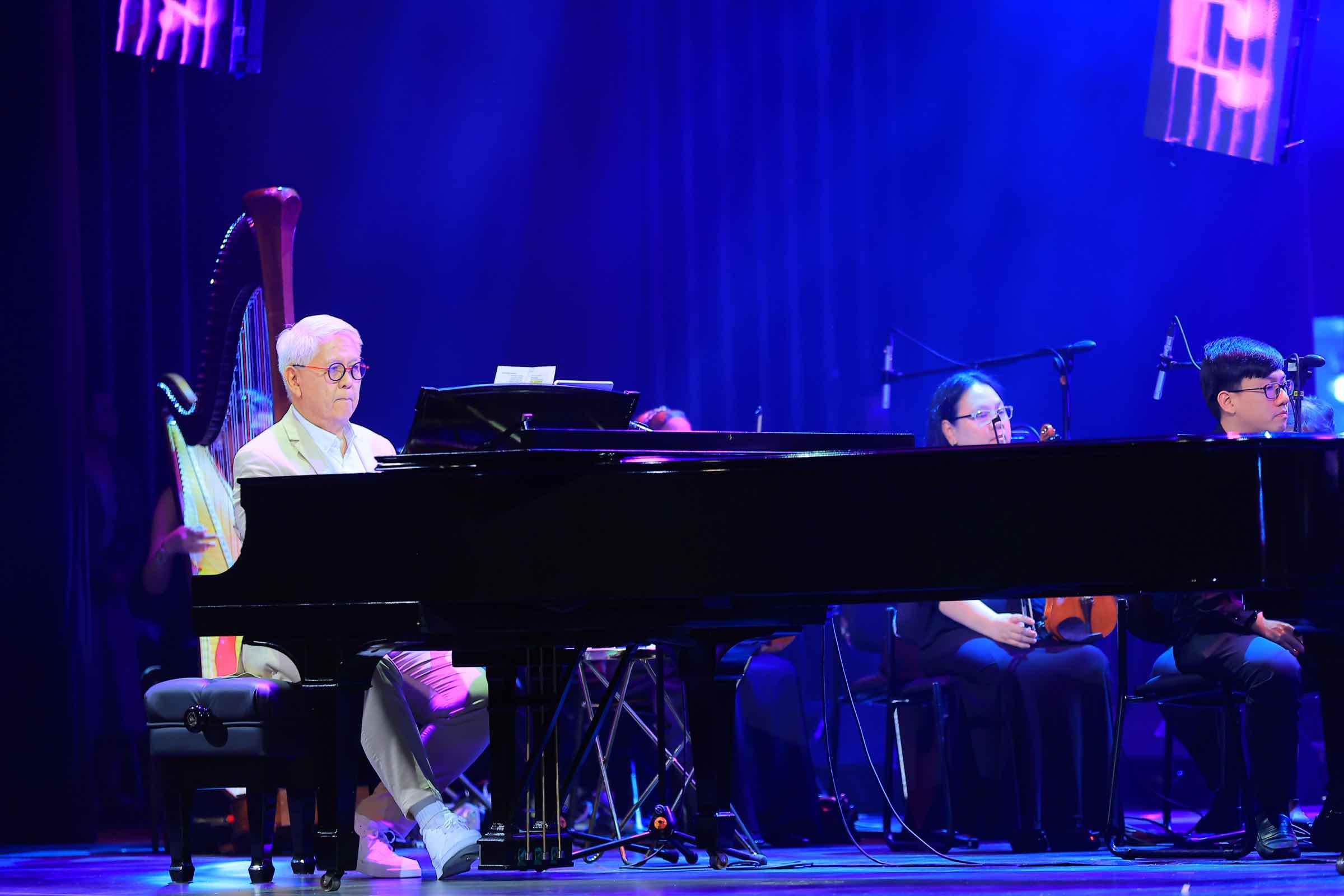
When the Philippine Philharmonic Orchestra, no less, started to play the few notes of Kay Ganda ng Ating Musika to open the show, the audience at the theater were already ecstatic. Mr. C, on the grand piano, his white Gen Z-inspired sneakers ready on the pedals, welcomed with a smile on stage the Ryan Cayabyab Singers. He was smiling from ear-to-ear as the singers soared; indeed, a fitting opening, kay ganda talaga ng ating musika.
The party-like mood—the ladies from Makati gated communities beside me were tapping on their lap or their feet gently stomping on the seeming musty carpet of the theater—continued when the exceptional voicing of the Ateneo Chamber Singers exploded with Hibang sa Awit. Mr. C was already in a trance. He owned the night as the concert was also his 70th birthday celebration.
Basil Valdez changed the tempo and mood of the night with his soulful rendition of Paraisong Parisukat and Nais Ko. Basil did not disappoint as his voice registered the needed calm after the stirring opening numbers.
But with The CompanY singing Limang Dipang Tao next, the audience were roused again. They proved their prowess again that night.
Tsismis, originally sung by Mr. C using his “16 voices,” was rendered with hilarity by Kakai Bautista, Phil Palmos, and Mikkie Bradshaw-Volante. It was a refreshing, naughty number as part of the tsismis spewed on stage that night was: “Pupunta daw ang ICC dito.” How a one-liner could not be inundated in a sea of melodious hissing was a stroke of genius.

Then Julie Ann San Jose, sauntering onto the center stage like a goddess of songs, sang Kailan with paean-like emotion. Her textured, powerful voice brought nostalgia. Her bravura as a singer resides both in her vocal chords and her heart that knows how to tell a story.

Can This Be Love? was sung by Janella Salvador with tangy sweetness in her tone.

The eight-member P-pop group BINI was missing one that night, but they excelled just the same when they sang the electro-like version of Da Coconut Nut, a Ryan Cayabyab original that choirs around the world have been covering in their performances. BINI, the most streamed Filipino idol group on Spotify Philippines, was the toast of the night even to the generations before them.

Then Bituin Escalante came, armed with her poignant, potent, and powerful voice that made her rendition of Hello Joe, Goodbye, the theme song of the film Desire, helmed by National Artist Eddie Romero, a memorable one. Goddess-like was her stance—her voice, full and textured, was disarming in its ability to soothe the soul. Why did she sing only one song?
Jed Madela was in his usual best when he belted How Can I? and Once Upon a Life.
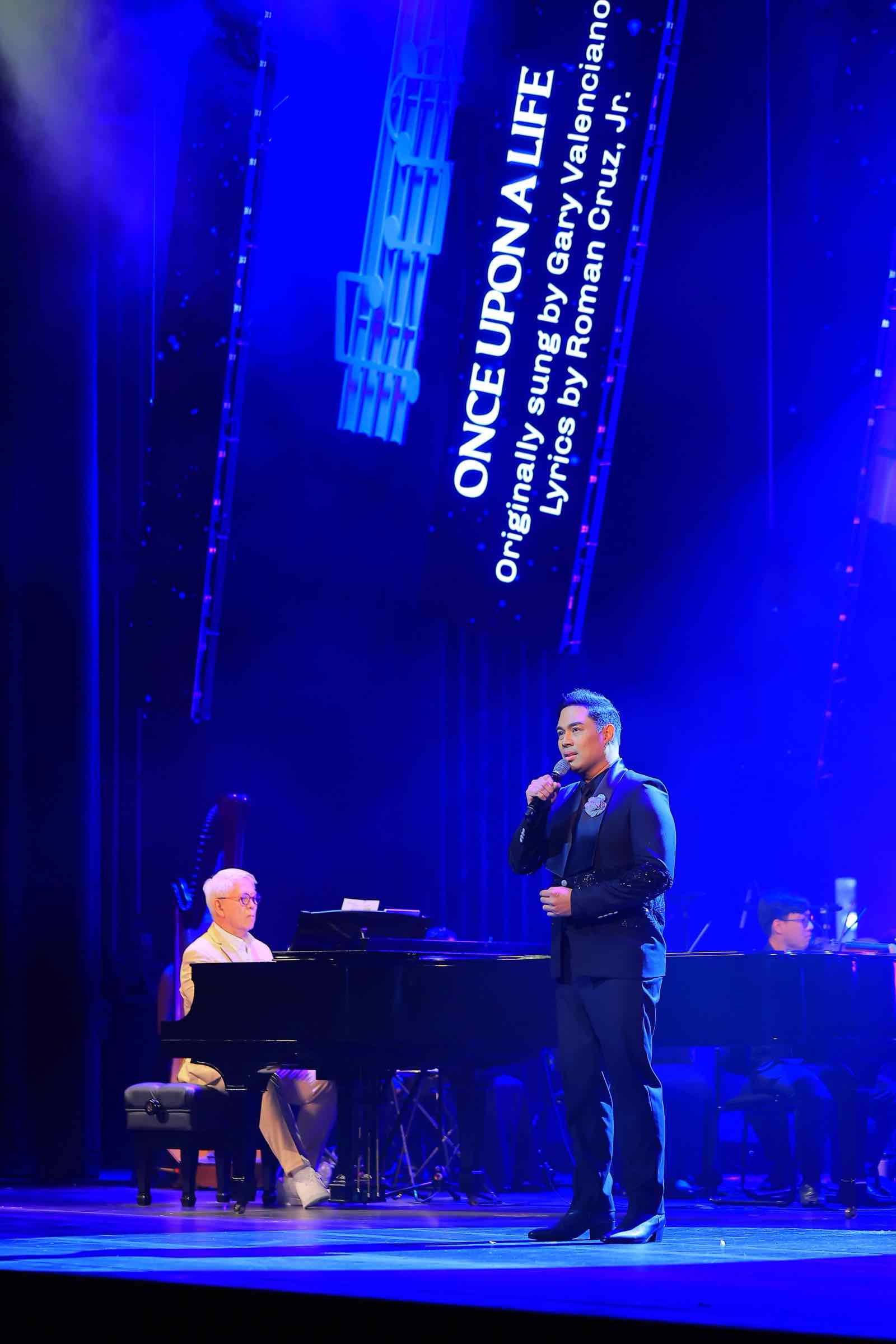
Angat sa Iba, a jingle of a soda commercial decades ago, took a refreshing take in the performances of the Ateneo Chamber Singers and Gloc 9.
In a concert where the music of Mr. C was being feted, Ben&Ben came with their own songs, Comets, Ride Home, and Leaves. Though they were exquisite in their rendition, methinks bringing songs by other composers to Gen C was a fish-out-of-water stance, albeit beautiful. But their version of Tuwing Umuulan, a Ryan Cayabyab composition, was a soothing hit.

If Stell of SB19, armed with the stratospheric yet ear-candy singing style, shone bright with his performance of Sometime, Somewhere on the first night, Juan Karlos, on the other hand, dived right into the core with his melodious low notes when he sang Paraiso. Perhaps the loudest applause was reserved by the audience for him. Walang sabit ang low notes. Perfect. One could feel the resonance of the controlled low notes on JK's face. He is another good storyteller.

Vice Ganda was a total package of wit, humor, and candor. Her hilarity was spot-on—one would wish her humor on TV, which many times borders on being foolhardy, would be the same. She was a class act that night. Her words were well-chosen. Her intelligence, ensconced on her ability to tell the crowd of her challenged past, glimmered bright like the real gem that she was. And yes, she could sing. She could more than sing. Her rendition of Wala Kang Katulad seemed to be an exploration of the beautiful life she lives now. It was as if the song was written for her.
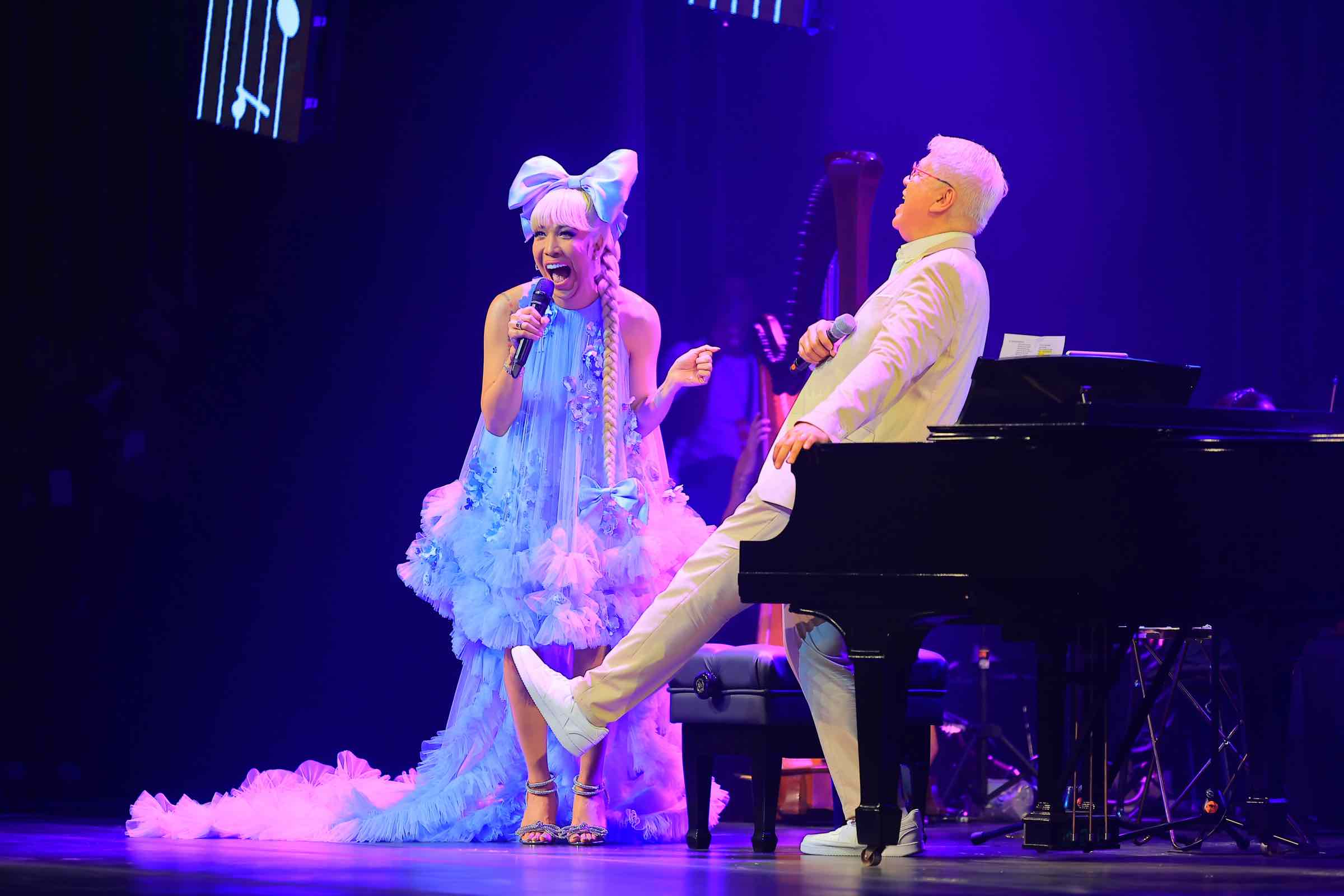
Mr. C made the audience privy to his romantic side when he performed Tunay na Ligaya with his wife Emmy Cayabyab. It was the only time Mr. C did not conduct the PPO as he let his son Toma Cayabyab take the helm. It was a beautiful, effortless, sincere act.
Martin Nievera brought his best performance with How Can I? and Araw, Gabi.
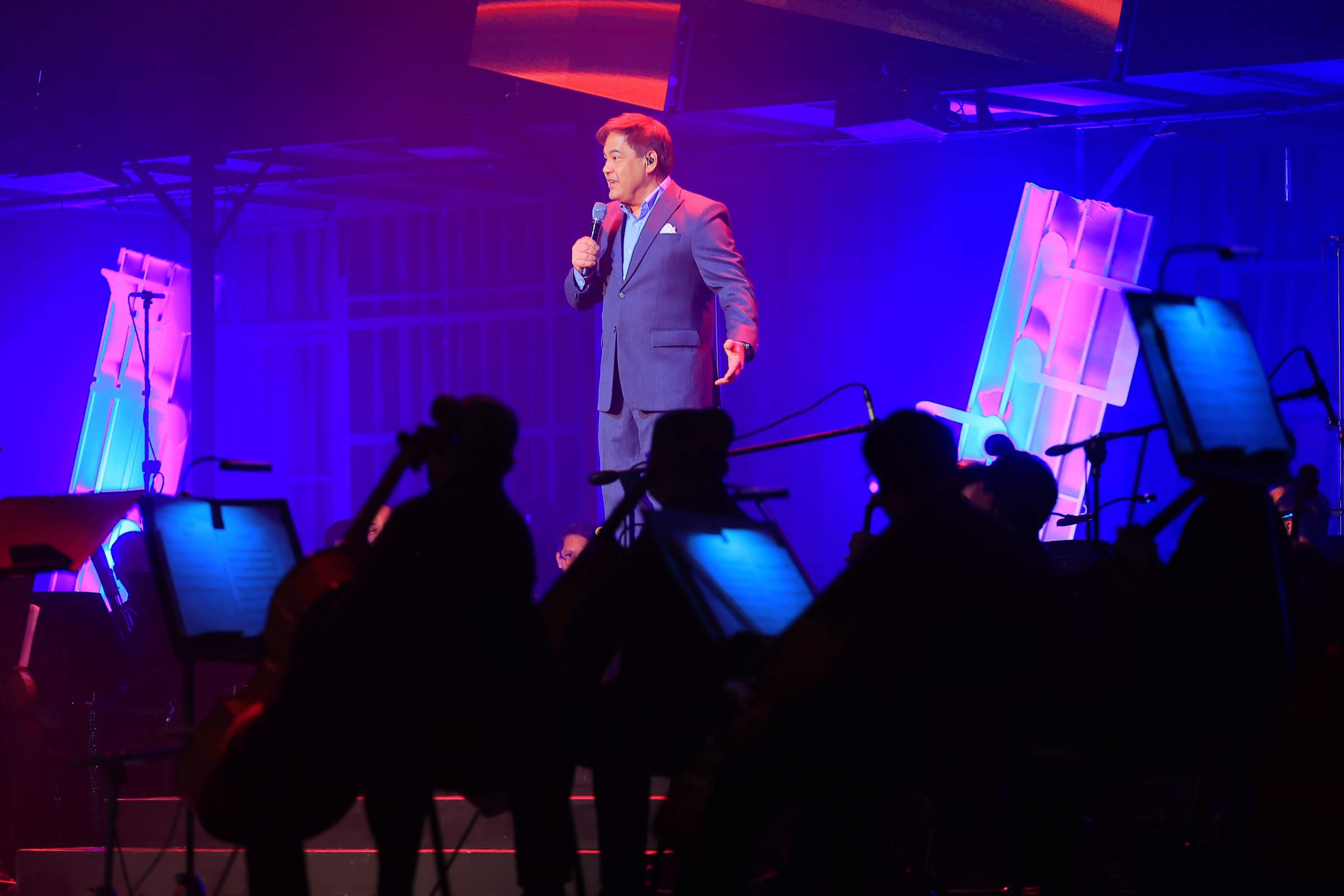
Then a musical suite took center stage and the night exploded with the songs from Larawan, Katy; Rama, Hari; Alikabok; and Noli Me Tangere. Performers for the suite were luminaries of the Philippine stage: Menchu Lauchengco-Yulo, John Arcilla, Sheila Valderama Martinez, Arman Ferrer, Nonie Buencamino, and Aicelle Santos. When the spotlight was speckled on them, their voices heightened how great Filipino singers are. They are a treasure.
Poppert Bernadas, a member of the Ryan Cayabyab Singers, gave one of the most unforgettable performances as he soared mightily in Buktot, from the ballet musical Rama, Hari. His pipes, blowing crystal-clear pop rock timbre, were commanding and what made them more powerful was the emotion he lent the song.
John Arcilla, too, had a stage presence one could not dismiss. And when he opened his pipes, angels flew with the melody he could give. His Hindi Simple Ang Buhay from Larawan and Minsan Ang Minahal ay Ako from Katy were at once profound and heartfelt.
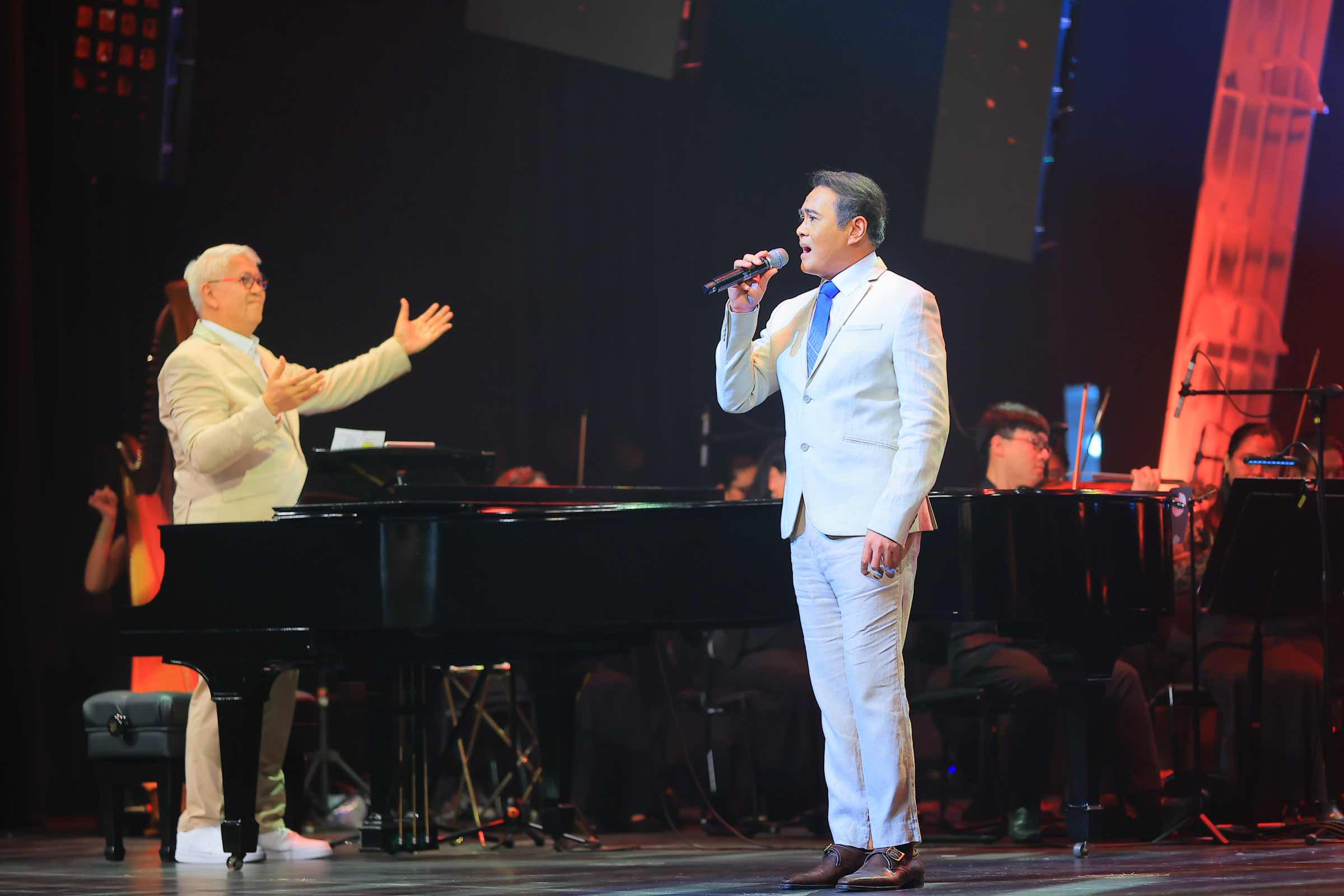
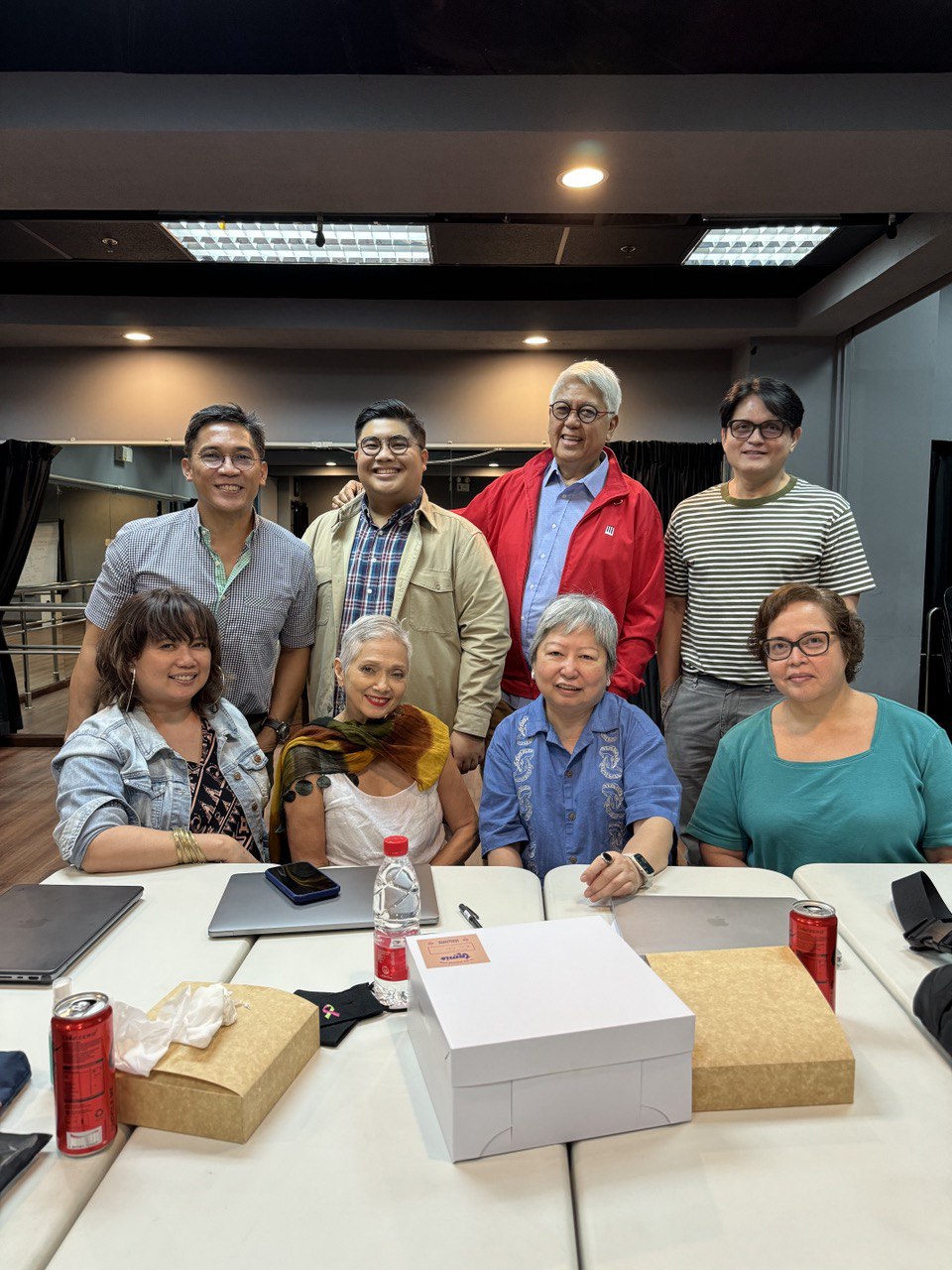
All artists occupied the stage again for the finale, A Better World. Indeed, the composition of Mr. C aches for a better world, one song at a time, which should not be impossible to achieve given the love for music of the Filipino people.
The Philippines is a musical nation and the people have gained a lot from the music of a Filipino soul—Ryan Cayabyab.


